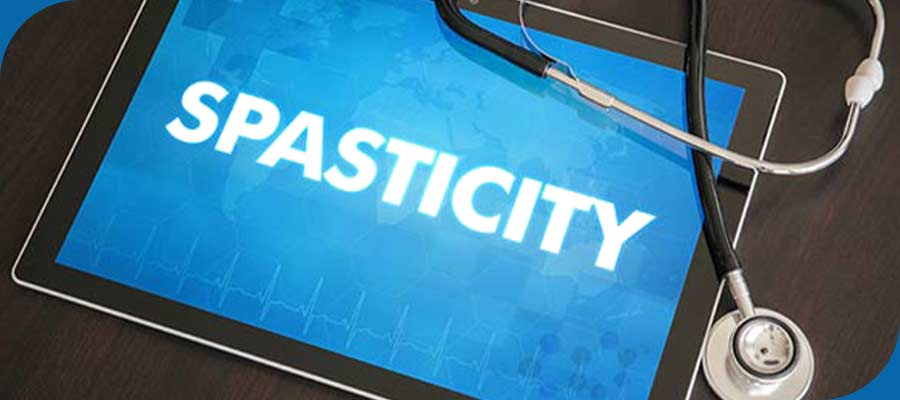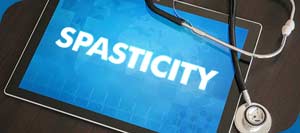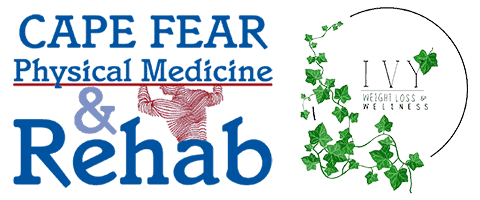Spasticity Management Specialist in Fayetteville, NC
Spasticity is a condition characterized by muscle stiffness and involuntary contractions, often caused by neurological conditions such as stroke or cerebral palsy. At Cape Fear Physical Medicine and Rehab, our professional team specializes in spasticity management to help patients improve their muscle control and mobility. We develop personalized treatment plans to reduce muscle stiffness and enhance movement, allowing individuals to regain independence and improve their quality of life. For more information, contact us or schedule an appointment online. We are conveniently located at 1540 Purdue Dr, Ste. 200, in Fayetteville, NC 28303.


Table of Contents:
What is spasticity management?
What causes spasticity?
What are the symptoms of spasticity?
How is spasticity diagnosed?
Muscle stiffness can be painful and frustrating to deal with, even when it occurs as an acute episode from working out too much or recovering from an injury. To that extent, muscle spasticity, which involves chronic stiffness at best and painful and uncontrollable spasms at worst, can often feel quite debilitating without the proper management plan in place. At Cape Fear Physical Medicine & Rehab, we understand the difficulty of dealing with spasticity and can provide you with highly effective treatment plans to help you manage and overcome spasticity in your muscles.
Spasticity management refers to treatment plans developed by a medical doctor in consultation with a patient to help the patient manage and deal with chronic spasticity. Chronic spasticity is a muscular disorder where individuals experience continual stiffness, tightness, and uncontrollable spasms in specific muscles.
With that in mind, a spasticity management plan typically involves a variety of exercise and stretching routines, specialized bracing therapies, as well as botulinum toxin injections, also known as Botox, through electromyographic (EMG) guidance.
The bracing, exercise, and stretching therapies in spasticity management vary according to the patient’s needs, such as the location of the affected muscles, the severity of their muscle stiffness and spasms, and other factors.
EMG-guided Botox injections have diagnostic and treatment purposes. Through EMG, a medical device that measures electrical activity in your muscles, your doctor can determine the exact affected muscles and require treatment. Once those muscles are identified, they will inject a pre-determined amount of Botox into the muscles to relax the nerves and suspend muscle activity in the treatment area—effectively giving you reprieve from muscle stiffness and spasms.
In general, the cause of spasticity is directly related to damage or disruption to the nerve signals in the brain and spinal cord responsible for muscle contractions and reflexes. This disruption can be due to an imbalance of inhibitory and excitatory signals delivered to the affected muscles, effectively locking the muscles, or various neurological conditions like cerebral palsy, multiple sclerosis, or a brain or spinal cord injury.
The symptoms of spasticity vary in severity from mild muscle tightness and stiffness to painful spasms that you cannot control. With that being said, some common symptoms of spasticity are as follows:
• Abnormal increase in muscle tone
• Deformities in the bones, muscles, or joints
• Joint pain or stiffness
• Involuntarily crossing your legs
• Muscle decline or fatigue
• Postural irregularities
• Spasms, which are painful and uncontrollable muscle contractions
• Stiffness in the muscles, causing your muscles to move with less precision and affecting your ability to perform routine tasks
The extent of the testing that goes into diagnosing spasticity varies according to its severity in the patient. As such, basic testing for spasticity involves a physical examination and some neurological testing. With such tests, the doctor assessing the patient’s condition will be evaluating such things as posture, how much control the patient has over their movements, muscle strength, coordination, endurance, and the measure of muscular resistance that occurs during a passive stretch.
In more advanced cases of spasticity, a medical resonance imaging (MRI) scan may also be recommended to identify the source of the spasticity and determine how much damage it has caused.
The skilled and experienced doctors and spasticity management specialists at Cape Fear Physical Medicine & Rehab would be pleased to provide you with effective treatment solutions if you are dealing with spasticity-related concerns.
At Cape Fear Physical Medicine and Rehab, we are committed to providing personalized care to help manage spasticity and improve your quality of life. Our skilled team works closely with each patient to create a treatment plan that reduces muscle stiffness and enhances mobility. Contact us today or schedule an appointment to learn more about how we can help you regain control and independence. We are conveniently located at 1540 Purdue Dr, Suite. 200, Fayetteville, NC. We serve patients from Fayetteville NC, Woodfield NC, Hope Mills NC, Fort Bragg NC, Eastover NC, and surrounding areas.

Check Out Our 5 Star Reviews


Additional Services You May Like
▸ Weight Loss & Wellness Program
▸ Botox for Migraine
▸ EMG Nerve Conduction Studies
▸ Epidural Steroid Injections
▸ Radiofrequency Ablation
▸ Rehabilitation Consultations
▸ Facet Injections
▸ Sacroiliac Joint Injections
▸ Joint Injections
▸ Genicular Nerve Blocks
▸ Prosthetic Evaluation/Management
▸ Adjuvant Therapy/Care
▸ Spasticity Management
▸ Stroke Treatment
▸ Multiple Sclerosis
▸ Spinal Cord Injury
▸ Traumatic Brain Injury
▸ Lifestyle Medicine
▸ Phentermine
▸ Qsymia
▸ Contrave

Additional Services You May Like
▸ Weight Loss & Wellness Program
▸ Botox for Migraine
▸ EMG Nerve Conduction Studies
▸ Epidural Steroid Injections
▸ Radiofrequency Ablation
▸ Rehabilitation Consultations
▸ Facet Injections
▸ Sacroiliac Joint Injections
▸ Joint Injections
▸ Genicular Nerve Blocks
▸ Prosthetic Evaluation/Management
▸ Adjuvant Therapy/Care
▸ Spasticity Management
▸ Stroke Treatment
▸ Multiple Sclerosis
▸ Spinal Cord Injury
▸ Traumatic Brain Injury
▸ Lifestyle Medicine
▸ Phentermine
▸ Qsymia
▸ Contrave







